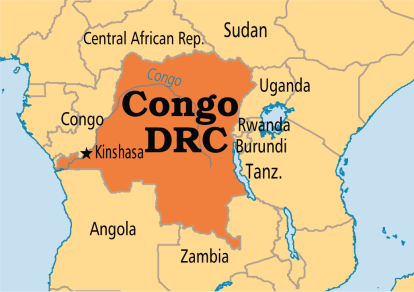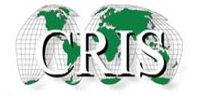
Why are individuals fleeing the Democratic Republic of the Congo?
Genocide and tribal war has perpetuated for decades, specifically in the provinces of North Kivu and South Kivu in the Eastern part of the DRC.
Primary language(s) in the Democratic Republic of the Congo
(Statistics from “The World Factbook” on CIA website)
French (official)
Lingala
Kingwana
Kikongo
Tshiluba
Kinyawanda (the language of Rwanda, spoken in the Eastern part of the DRC)
Religions in Democratic Republic of the Congo
(Statistics from globalreligiousfutures.org)
95.7% Christian
1.8% Unaffiliated
<1% Other Religions
Guidelines for Interacting with Congolese Refugees
What are some cultural differences?
- The right hand is used while eating; using the left is considered rude.
- Ethnic distinctions have caused conflict in the DRC, so discussion of this topic may sensitive.
- Large extended families are common and back home children are raised by the entire community.
- Time is not a strict concept. What it means to be on time differs and arriving after a determined time is not seen as problematic or rude. Adjusting to the more rigid concept of time in the United States can present a challenge.
What are some resettlement considerations?
- Individuals arrive with diverse experiences. Most have lived in refugee camps in Rwanda and Uganda before coming to the U.S., and some are urban refugees that have lived in large cities.
- Soccer is a popular sport in the DRC and is a great way to connect and find common ground with children in the U.S.
- Educated adults with degrees from universities in the DRC may have to work minimum wage jobs in the United States, as with any individual we resettle with previous certifications and degrees.
- Individual family members may not have the same level of proficiency in different languages. For example, parents may speak French and children may know some English and/or the language of the country of camp residency in which they group up (not the parents country of origin).
Tips for home visits:
- Men are typically the heads of household in Congolese families and make all major decisions for the family.
Common Phrases (Kiswahili/Swahili)
Source: http://www.omniglot.com/language/phrases/swahili.php
Welcome: Karibu
Hello/How are you?: Hujambo
Response: Sijambo
Yes: Ndiyo
No: Hapana
Thank you: Asante
*This collection of information is neither perfect nor comprehensive. Each culture is unique and cultural norms are diverse even among individuals from the same culture. Additionally, the refugees from the following places are diverse, as is easy to see in the guidelines in this report.
